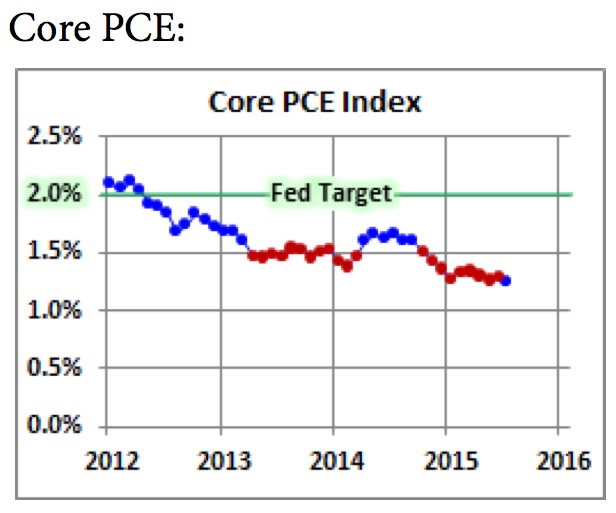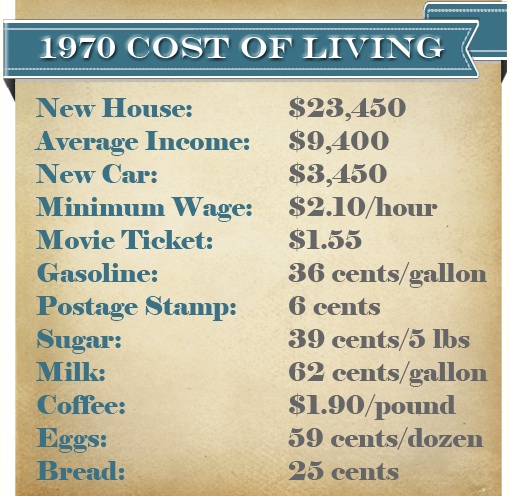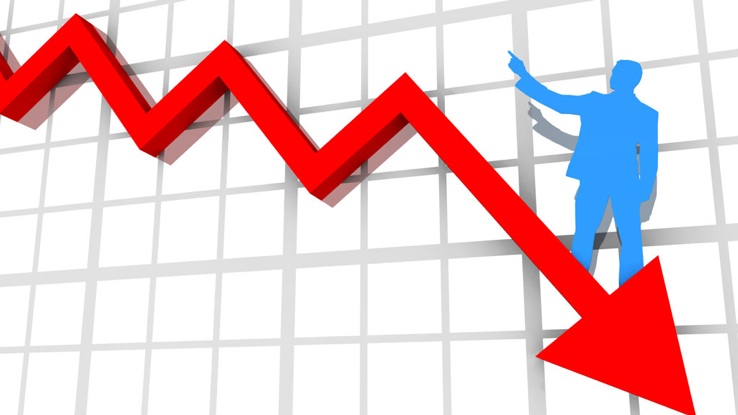Global Markets And Economies Are In Serious Trouble
6868 Views September 12, 2015 GOLD, KWN King World News

After another chaotic trading week in global markets, today one of the top economists in the world sent King World News an incredibly powerful piece warning that global markets and economies are in serious trouble. Below is the fantastic piece from Michael Pento.
By Michael Pento of Pento Portfolio Strategies
September 12 – (King World News) – One and Done Fed is a Wall Street Fantasy
One of the current myths promulgated by Wall Street is that the Federal Reserve will raise rates once this year, breathe a sigh of relief, and be done until the “12th of never.” But those who are familiar with our central bank’s history are aware that the Federal Open Market Committee (FOMC) has never tightened the Fed Funds Rate just once.
In the spring of 1988 fearing a rise in core inflation, the Fed went on a tightening cycle that lasted from April 1988 to March 1989. During that time the Fed funds rate increased more than 300 basis points. This episode was followed by a recession beginning in 1990, suggesting that the corrective policy actions may have worsened a weakening economy, and that the Fed is prone to being economically tone-deaf.
Then, during the fall of 1993, a rise in long rates represented a potential inflation scare and led the FOMC to raise the Funds Rate again another 300 basis points between February 1994 and February 1995.

And finally, as concerns over a potential housing bubble mounted, the Fed began to hike rates in June 2004 and continued through July of 2006, for a total increase of 425 basis points. Soon after, the subprime mortgage crisis was exposed and the Great Recession was in full throttle…
The Century’s Best Performing Asset
Eric Sprott, James Turk and George Soros all believe this company is advancing the digital payments revolution by helping people securely acquire, store, and now spend gold with unprecedented simplicity. Accounts are free and can be opened in minutes. They provide users with a secure vault account to purchase and hold gold, the ability to make and receive instant gold payments, and a prepaid card for spending gold at traditional points of sale. To hear what James Turk and others have to say about this company CLICK HERE.
Continue reading the Michael Pento piece below…
But we don’t have to be Fed soothsayers to predict the planned trajectory of the Funds Rate; the Fed makes its intentions public during four of its eight scheduled meetings. During those meetings the FOMC provides us with a model of the members’ expectations for policy rates in a chart known as the “dot plot” (see chart below).

While the FOMC is not bound by its “dot plot” predictions, it does provide insight into the committee’s monetary policy plans. The markets are aware of their intentions and will begin to price in future interest rates moves as soon as the Fed begins to tighten.
The latest dot plot shows that all 17 members of the FOMC believe the Federal Funds Rate should be under 1% by the end of 2015, with the median member seeing rates between 0.5% and 0.75%. That signals an end to ZIRP (zero interest rate policy). And although members differ on the level of rates at the end of 2016–with the median rate of around 1.6%–all members anticipate rates to rise throughout next year.
Therefore the market shouldn’t expect to see a “one and done” move on interest rates because the Fed has told us not to anticipate one. The only reason overnight rates won’t be moving above 1.5% by the end of 2016 will be if the unemployment rate moves higher due to a collapsing economy, which is not exactly good news for stock prices.
Furthermore, the Fed has worked very hard to be unconstrained by time; it has substituted the word “patient” for the phrase “data-dependent.” Therefore, when the Fed raises rates Ms. Yellen will not say at her press conference that it’s a one-and-done operation, or that the Fed will wait until some appointed future timeframe for the second rate hike to occur. Instead, the Fed can only proclaim that the next rate hike will be based on further progress toward their inflation target.
The problem with that is if you look at the core PCE Index, inflation is currently moving away from their target (see chart below).

So you ask, why would the Fed still move? Because the U-3 Unemployment rate is moving dangerously close to crossing what the FOMC believes is the inflationary Philips Curve Maginot line. This is the imaginary line where Keynesians believe a low unemployment rate triggers rising inflation.

The 1970s
However, anyone who lived through the stagflation of the 1970s or who looks historically at the relationship between inflation and unemployment rates can proclaim with absolute certainty that the Phillips Curve is completely bogus.
That’s because inflation doesn’t come from more people becoming productive; inflation is a function of the market losing faith in the purchasing power of a currency through its dilution.
Therefore, as long as the Obamacare economy keeps producing part-time food-service employees, the unemployment rate will continue to fall south of its current reading of 5.1%; and the Phillips-Curve-obsessed Fed will move more toward its dot plot goal in fear of employment inflation that is never coming.
The 2009 argument for a bull market was that the Fed would keep printing money until the stock market and economy improved. Now the complete opposite is true, the Fed will slowly hike interest rates simply to get off the zero-bound range it has been stuck at for seven years and because it is worried about a meaningless U-3 unemployment figure’s effect on inflation.

Global Markets And Economies Are In Serious Trouble
Nevertheless, for the first time in history it will be hiking rates into falling inflation, negative earnings and revenue growth on S&P 500 companies, and falling global GDP growth. Therefore, I predict the Fed will only be able to move the Fed Funds Rate higher by 50-75 bps before it becomes obvious even to the hopelessly confused FOMC that global markets and economies are in serious trouble.
This is the sad truth: Either the massively overvalued stock market and artificially inflated economy will continue the incipient rollover that began in the middle of August, causing the Fed to stay on hold; or the Fed will begin to slowly hike rates, causing the yield curve to quickly invert and the economy to completely fall apart. This is why wise investors should now be out of, or short, the stock market — at least until the S&P 500 trades near 1600, or the next round of QE is announced.
http://kingworldnews.com/global-markets-and-economies-are-in-serious-trouble/
6868 Views September 12, 2015 GOLD, KWN King World News

After another chaotic trading week in global markets, today one of the top economists in the world sent King World News an incredibly powerful piece warning that global markets and economies are in serious trouble. Below is the fantastic piece from Michael Pento.
By Michael Pento of Pento Portfolio Strategies
September 12 – (King World News) – One and Done Fed is a Wall Street Fantasy
One of the current myths promulgated by Wall Street is that the Federal Reserve will raise rates once this year, breathe a sigh of relief, and be done until the “12th of never.” But those who are familiar with our central bank’s history are aware that the Federal Open Market Committee (FOMC) has never tightened the Fed Funds Rate just once.
In the spring of 1988 fearing a rise in core inflation, the Fed went on a tightening cycle that lasted from April 1988 to March 1989. During that time the Fed funds rate increased more than 300 basis points. This episode was followed by a recession beginning in 1990, suggesting that the corrective policy actions may have worsened a weakening economy, and that the Fed is prone to being economically tone-deaf.
Then, during the fall of 1993, a rise in long rates represented a potential inflation scare and led the FOMC to raise the Funds Rate again another 300 basis points between February 1994 and February 1995.

And finally, as concerns over a potential housing bubble mounted, the Fed began to hike rates in June 2004 and continued through July of 2006, for a total increase of 425 basis points. Soon after, the subprime mortgage crisis was exposed and the Great Recession was in full throttle…
The Century’s Best Performing Asset
Eric Sprott, James Turk and George Soros all believe this company is advancing the digital payments revolution by helping people securely acquire, store, and now spend gold with unprecedented simplicity. Accounts are free and can be opened in minutes. They provide users with a secure vault account to purchase and hold gold, the ability to make and receive instant gold payments, and a prepaid card for spending gold at traditional points of sale. To hear what James Turk and others have to say about this company CLICK HERE.
Continue reading the Michael Pento piece below…
But we don’t have to be Fed soothsayers to predict the planned trajectory of the Funds Rate; the Fed makes its intentions public during four of its eight scheduled meetings. During those meetings the FOMC provides us with a model of the members’ expectations for policy rates in a chart known as the “dot plot” (see chart below).

While the FOMC is not bound by its “dot plot” predictions, it does provide insight into the committee’s monetary policy plans. The markets are aware of their intentions and will begin to price in future interest rates moves as soon as the Fed begins to tighten.
The latest dot plot shows that all 17 members of the FOMC believe the Federal Funds Rate should be under 1% by the end of 2015, with the median member seeing rates between 0.5% and 0.75%. That signals an end to ZIRP (zero interest rate policy). And although members differ on the level of rates at the end of 2016–with the median rate of around 1.6%–all members anticipate rates to rise throughout next year.
Therefore the market shouldn’t expect to see a “one and done” move on interest rates because the Fed has told us not to anticipate one. The only reason overnight rates won’t be moving above 1.5% by the end of 2016 will be if the unemployment rate moves higher due to a collapsing economy, which is not exactly good news for stock prices.
Furthermore, the Fed has worked very hard to be unconstrained by time; it has substituted the word “patient” for the phrase “data-dependent.” Therefore, when the Fed raises rates Ms. Yellen will not say at her press conference that it’s a one-and-done operation, or that the Fed will wait until some appointed future timeframe for the second rate hike to occur. Instead, the Fed can only proclaim that the next rate hike will be based on further progress toward their inflation target.
The problem with that is if you look at the core PCE Index, inflation is currently moving away from their target (see chart below).

So you ask, why would the Fed still move? Because the U-3 Unemployment rate is moving dangerously close to crossing what the FOMC believes is the inflationary Philips Curve Maginot line. This is the imaginary line where Keynesians believe a low unemployment rate triggers rising inflation.

The 1970s
However, anyone who lived through the stagflation of the 1970s or who looks historically at the relationship between inflation and unemployment rates can proclaim with absolute certainty that the Phillips Curve is completely bogus.
That’s because inflation doesn’t come from more people becoming productive; inflation is a function of the market losing faith in the purchasing power of a currency through its dilution.
Therefore, as long as the Obamacare economy keeps producing part-time food-service employees, the unemployment rate will continue to fall south of its current reading of 5.1%; and the Phillips-Curve-obsessed Fed will move more toward its dot plot goal in fear of employment inflation that is never coming.
The 2009 argument for a bull market was that the Fed would keep printing money until the stock market and economy improved. Now the complete opposite is true, the Fed will slowly hike interest rates simply to get off the zero-bound range it has been stuck at for seven years and because it is worried about a meaningless U-3 unemployment figure’s effect on inflation.

Global Markets And Economies Are In Serious Trouble
Nevertheless, for the first time in history it will be hiking rates into falling inflation, negative earnings and revenue growth on S&P 500 companies, and falling global GDP growth. Therefore, I predict the Fed will only be able to move the Fed Funds Rate higher by 50-75 bps before it becomes obvious even to the hopelessly confused FOMC that global markets and economies are in serious trouble.
This is the sad truth: Either the massively overvalued stock market and artificially inflated economy will continue the incipient rollover that began in the middle of August, causing the Fed to stay on hold; or the Fed will begin to slowly hike rates, causing the yield curve to quickly invert and the economy to completely fall apart. This is why wise investors should now be out of, or short, the stock market — at least until the S&P 500 trades near 1600, or the next round of QE is announced.
http://kingworldnews.com/global-markets-and-economies-are-in-serious-trouble/





» Al-Alaq: The monetary situation in Iraq is excellent and our reserves support the stability of the e
» utube 11/23/24 MM&C Reporting-Expectations are High-IMF-Flexible Exchange Rate Regime-Pr
» utube 11/25/24 MM&C MM&C Iraq News-CBI Building Final Touches-Oil Exports-Development Road-Turkey-B
» Parliamentary movement to include the salary scale in the next session
» Parliamentary Finance Committee reveals the budget paragraphs included in the amendment
» Al-Maliki calls on the Bar Association to hold accountable members who violate professional conduct
» Politician: The security agreement with America has many aspects
» Kurdistan Planning: More than 6 million people live in the region, the oldest of them is 126 years o
» Al-Alaq: Arab consensus on the role of central bank programs in addressing challenges
» Economics saves from political drowning
» Agriculture calls for strict ban on import of "industrial fats" and warns of health risks
» Iraq is the fourth largest oil exporter to China
» Railways continue to maintain a number of its lines to ensure the smooth running of trains
» Parliament resumes its sessions tomorrow.. and these are the most important amendments in the budget
» Bitcoin Fails to Continue Rising as It Approaches $100,000
» Minister of Planning: There will be accurate figures for the population of each governorate
» Popular Mobilization Law is ready for voting
» Mechanisms for accepting people with disabilities into postgraduate studies
» Government coordination to create five thousand jobs
» Transport: Next month, a meeting with the international organization to resolve the European ban
» Census is a path to digital government
» Calls to facilitate loans and reduce interest rates for the private sector
» The launch of the third and final phase of the "population census"
» Al-Sudani: We have accomplished a step that is the most prominent in the framework of planning, deve
» Justice discusses modern mechanisms to develop investment in real estate and minors’ money
» Dubai to host Arabplast exhibition next month
» Al-Tamimi: Integrity plays a major role in establishing the foundations of laws that will uphold jus
» Reaching the most important people involved in the "theft of the century" in Diyala
» Transportation: Completion of excavation works and connection of the immersed tunnel manufacturing b
» Between internal and regional challenges... Formation of the Kurdistan government on a "slow fire" a
» Kurdistan Region Presidency: We will issue a regional order to determine the first session of parlia
» The Minister of Foreign Affairs announces the convening of the Ambassadors Conference tomorrow, Mond
» Al-Sudani: Iraq must always be at the forefront
» Al-Mashhadani: We support the Foreign Ministry in confronting any external interference that affects
» Al-Sudani chairs meeting with Oliver Wyman delegation
» Half a million beggars in Iraq.. 90% of them receive welfare salaries
» Sudanese announces preliminary results of the general population and housing census in detail
» The centenary of the Iraqi Ministry of Foreign Affairs.. A journey of challenges and achievements
» Prime Minister's Advisor Announces Assignment of Two International Companies to Study Iraqi Banking
» Agriculture: Integrated Support Project Provides 1,333 Job Opportunities
» The Media and Education Commission discuss introducing advanced curricula related to artificial inte
» Al-Mashhadani’s First Test: Discussing Israeli Threats and Avoiding Controversial Laws
» By name.. A parliamentary bloc reveals that five ministers will be questioned at the end of the legi
» The financial budget is subject to political and economic amendments in the next parliamentary sessi
» Will the government's efforts succeed in ending the electricity crisis in Iraq?
» Baghdad Airport Customs Increased to 400% After Implementing Automation
» EU: Integrated Support Project in Iraq Creates Jobs in Agriculture and Youth
» Al-Sudani attends the centenary ceremony of the establishment of the Ministry of Foreign Affairs
» Al-Mashhadani: We seek to keep foreign policy away from alignments that harm Iraq’s unity and sovere
» The Iraqi government is working to develop a competitive banking system and support the private sect
» Al-Alaq: Arab consensus on the role of central bank programs in addressing challenges
» Regional markets rise in first session of the week
» Kurdistan Region Presidency: We will issue an order to set the first session of the regional parliam
» Political differences hinder oil and gas law legislation
» Government coordination to create new job grades for graduates
» The financial budget is subject to amendments in the next parliamentary session
» Alsumaria Newsletter: Iraq reaches the final stages of the census and Parliament resumes its session
» After the elites and workers... Iranian factories "migrate" to Iraq
» Beggars in Iraq "refuse" welfare salaries.. Their profits are 10 times the salary!
» Amending the Election Law... A Means to Restore the Dilapidated Legitimacy
» Prime Minister announces population census results, Iraq reaches 45 million mark
» Find out the dollar exchange rates in the Iraqi markets
» Kurdistan Interior Ministry: General amnesty does not include those accused of killing women
» utube 11/21/24 MM&C MM&C News Reporting-Global Trade-Best Route in World-Purchase Power-Justice-Cen
» Al-Sudani discusses with the Secretary-General of the Digital Cooperation Organization enhancing dig
» President of the Republic: Partnership with the United States is essential to achieve regional stabi
» Mazhar Saleh reveals details of the 2023 budget and the 2024 budget horizon
» Absent control and rising corruption.. Sudan faces a harsh political winter
» A representative shows the laws prepared for voting during the upcoming sessions.
» Corrupt people in it.. Independent MP criticizes the performance of Al-Sudani's government
» Parliamentary Oil Committee reveals government move to end electricity crisis
» The Administrative Court postpones consideration of the lawsuit on the legitimacy of the Kirkuk gove
» MP: The ministerial reshuffle depends on consensus within the state administration
» Politicians put question marks on Al-Sudani: corruption, espionage and serving foreign interests
» The International Union of Arab Bankers honors the Chairman of the Private Banks Association: A prom
» Industry: Contracts to supply state ministries with food products
» After Shell Withdrawal, American Company Heads to Implement Al-Nibras Project in Iraq
» Revealing the fate of the Chinese deal in Iraq.. It was disrupted by this party
» The Central Bank of Iraq 77 years of challenges and reforms
» "Unprecedented numbers"... American "CNN" talks about tourism in Iraq
» After implementing automation, Baghdad Airport Customs jumps 400 percent
» Iraq participates in sustainable development activities
» Al-Sudani opens 790 model schools
» Parliamentary Culture: The Right to Information Law will satisfy all parties
» Al-Mashhadani to {Sabah}: Tomorrow we will discuss the Zionist threats
» Industry to {Sabah}: Contracts to supply state ministries with food products
» Trade cooperation between Najaf and Isfahan
» {New building} and {electronic systems} to develop forensic medicine
» A specialized center for monitoring the environmental situation in the capital
» International and parliamentary praise for the success of the "population census" process
» The European Union organizes a workshop in Basra on central administration and the wealth distributi
» The Media Authority and the Ministry of Education discuss the importance of enhancing and introducin
» Iraq's oil exports to America rose last week
» Electricity announces loss of 5,500 megawatts due to complete halt of Iranian gas supplies
» Tomorrow.. The Arab League is looking to unify its position against Israeli intentions to strike Ira
» The Central Bank moves its secret vaults to its new building.. Clarification of the truth of the cla
» Network reveals the fate of the Chinese deal.. It was disrupted by "Iraqi officials"
» From the White House to the "Leaders of Iraq"... A Message Regarding the Targeting of Baghdad